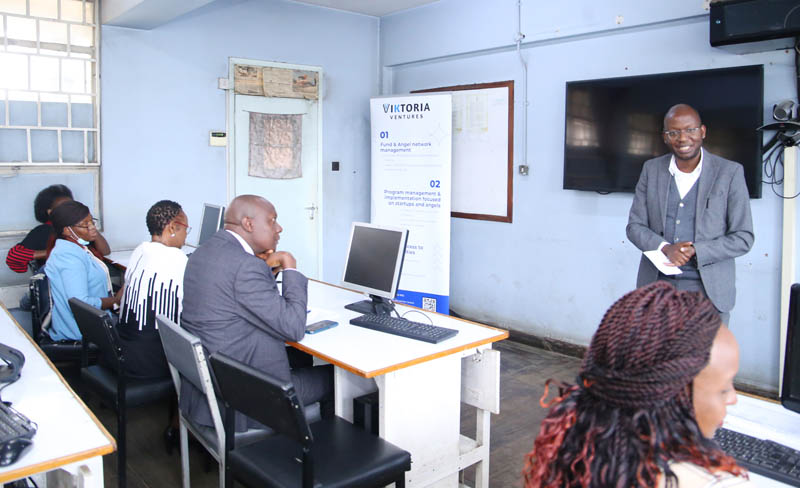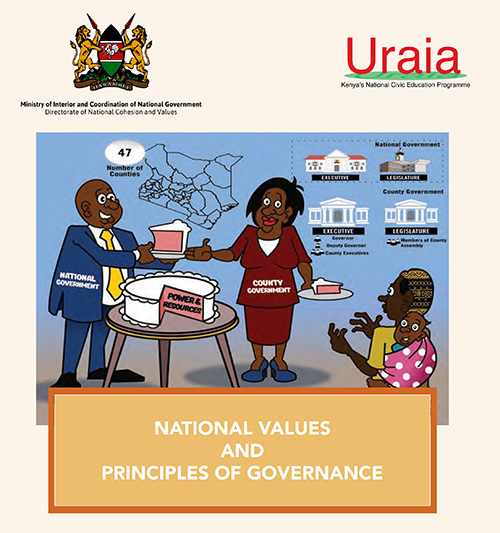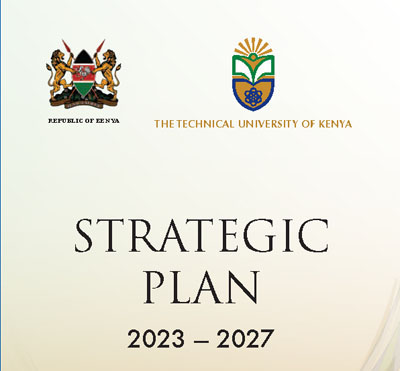The Deputy Vice-Chancellor, Prof. Alfred Orina Isaac, challenged university researchers to bridge the research knowledge gap by working closely with Small and Medium Enterprises. He was speaking during a Training of Trainers (ToT) for lecturers from the School of Business and Management Studies.
“As a university we conduct good research work but it doesn’t get to the Small and Medium Enterprises (SME), who need this knowledge to upscale their businesses”. As such, we are excited about this training, whose objectives is to inform and bridge the knowledge gap as well as to start an innovation hub,” he said.
Prof. Orina emphasized that TU-K is a special university with a special mandate. Due to the technical nature of training that the university provides, the university is expected to offer practical oriented training to foster both economic and social development. This is particularly relevant for students studying Bachelor of Technology Courses that are offered from degree to master’s level. During their research they are expected to develop research concepts which seek to identify and solve challenges. “As such this training is very relevant”
He also invited the visiting team to tour university facilities, so that they can familiarize themselves with the equipment available.
“Business people thrive on images, that is what they see, so that they make up their mind on what they want. We hope that through the tour we will be able to collaborate more in terms of equipment and machinery,” he said. He added that the training will help the university in developing content, partnerships which will support them to learn how to present their innovations in a professional manner,”
The 5-day ToT sought to provide training, coaching and mentorship to researchers as well as innovators so that they are able to commercialize their innovations. The training is funded by The Research and Innovation Systems for Africa (RISA) Fund. This is a multi-country project funded by the UK, through the Foreign, Commonwealth and Development Office (FCDO) which seeks to strengthen research and innovation systems in Africa. He concluded by thanking The Research and Innovation Systems for Africa (RISA) for funding this project adding that the university looks forward to further collaboration. Mark Lawler, Team Lead, RISA said that he was impressed by the commitment demonstrated by the university, to undertake the training which is crucial to the work they do. “This is central to the work that we that we do, and the best part is that the training will be integrated in the curriculum,” he added
Stephen Gugu, Co-Founder, Viktoria Ventures, said that for the last 10yrs their organization has been working with researchers to commercialize their innovations. He invited everyone to join their monthly webinars to learn different skills on the commercialization process.
Stephen gave a few success stories, one that involved Safi Power, a renewable energy company, that helps hotels, institutions and manufacturing industries to reduce expenses on electricity by installing solar power. He was impressed that former TU-K students were a part of the project.
“We see this as a transformative process because the knowledge that we are providing will reach the students so that they don’t just solve real life problems but also provide better, faster and efficient solutions,” he concluded. This training was facilitated by ViKtoria Ventures, in partnership with The Kenya National Innovation Agency.




